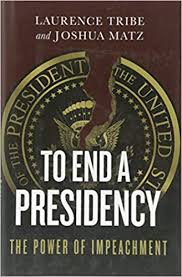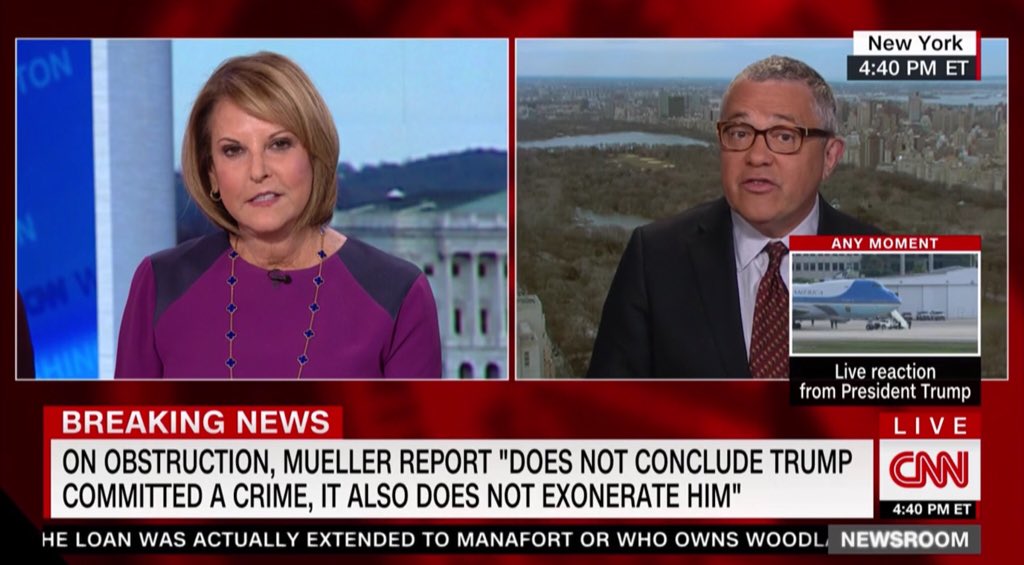Unitary Executive Theory and Executive Privilege
Barr refused to give Congress the unredacted Mueller report.
Mnuchin refused to hand over Trump’s tax returns.
reuters.com/article/us-usa…
Now Trump Jr. is resisting a subpoena.
int.nyt.com/data/documenth…
nytimes.com/2019/05/08/us/…
Trump did so.
Pelosi then declared a Constitutional Crisis over Trump's refusal to cooperate.
IOW, Trump is corruptly using power to obstruct investigations into himself, to put himself above the law.
nytimes.com/interactive/20…
Recall Bar’s 4-part defense of Trump (given in his Senate testimony):
💠Trump is head of the executive branch;
💠Trump therefore has “constitutional” control over the executive branch;
💠If Trump believes an investigation is based on false claims, he can shut it down out of concern for the effect the “false accusations” might have on his administration;
John Yoo—former Dep. AG under G.W. Bush and author of the famous Torture Memo (arguing for Bush's authority to use torture on terror suspects) isn’t alarmed by Trump's actions.
npr.org/2019/05/08/721…
Yoo is also a proponent of the Unitary Executive Theory, which he explains here👇
npr.org/2019/05/08/721…
Yoo says the President has ‘expansive’ powers to run the executive branch as he sees fit. He can even break laws if necessary for national security.
To take 2 famous examples: Lincoln suspended the writ of habeas corpus (in limited context) during the Civil War; FDR interned Japanese-Americans.
Now Trump won't give Congress his tax returns.
(I’m not sure about the “all” part: Perhaps more accurately: All presidents have been accused of using power in controversial ways, and many have.)

He also thinks eventually Congress will get what it wants.
Congress, for example, holds the power of the purse, so it can start cutting off funding.
It also has impeachment powers.
At the same time, Yoo argues that Trump is overreaching in what he calls an emergency.
npr.org/2019/05/08/721…
Well, yeah: Trump seems to think a “national emergency” is anything that makes him look bad.
reason.com/2018/05/03/ret…
Regulatory agencies, by their nature (rule-making) are subject to congressional oversight.
It’s selectively applied to Republicans, so it isn’t a Rule as in Rule of Law.
It’s a cynical power grab.
This raises the same question: What is necessary for national security?
Trump's view (no surprise) is if it makes him look bad, it harms national security.
The subpoena he didn’t want to comply with was for records about his former VP Aaron Burr.
history.com/this-day-in-hi…
Jefferson said that he had the right to keep his papers secret to “protect the public interest.”
For him, protecting the public interest meant helping to convict Burr.
I expect Trump will argue that allowing Congress to see what’s behind the Mueller redactions will harm national security. (The argument applied to his taxes is a bit weaker.)
If they call their inquiry an Impeachment Inquiry instead, they have a stronger claim.
theatlantic.com/ideas/archive/… (@jedshug)
Trump will continue doing everything in his power to obstruct the investigations into his own wrongdoing.
The right will say he’s justified under the Unitary Executive Theory.
What matters, it seems to me, is for the truth to come out.
And it will.
For example, yesterday Judge Amy Jackson ordered the DOJ to submit the unredacted report for her review.
Mueller can (and I expect will) testify in Congress.
As long as the Dems state that their goal is getting the truth, they’ll win.
The pursuit of truth is a noble goal that (should) soar above partisanship.
From Pelosi's interview👇
cnn.com/2019/05/07/pol…
end/









